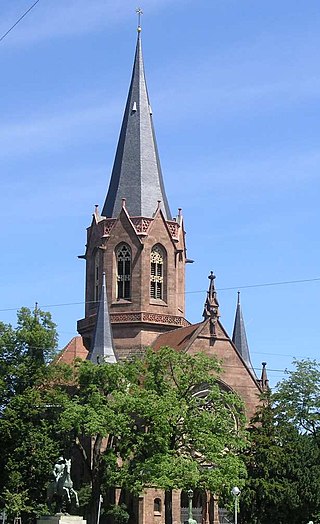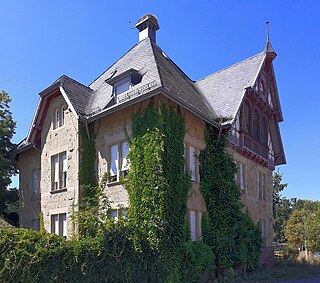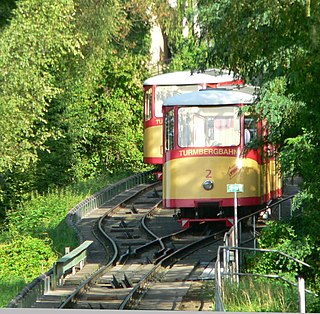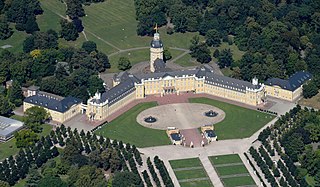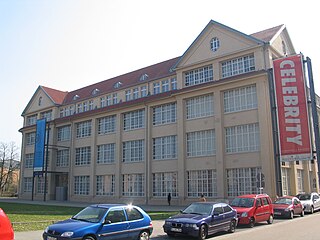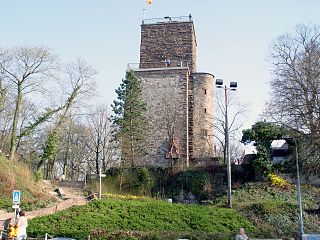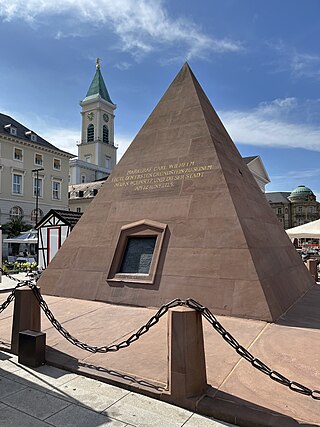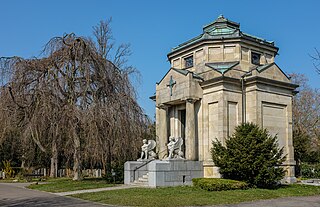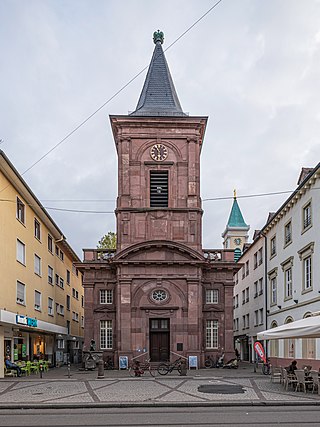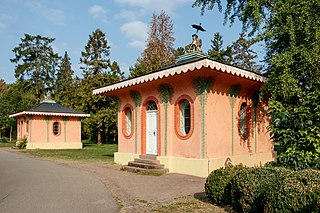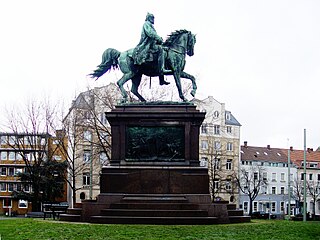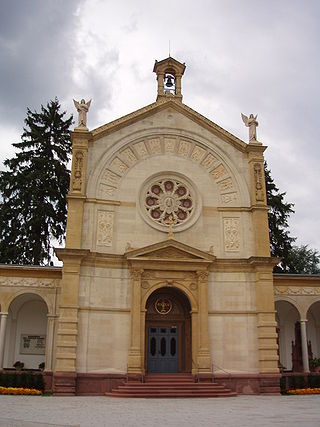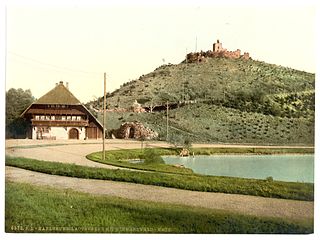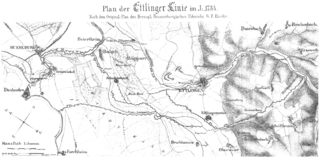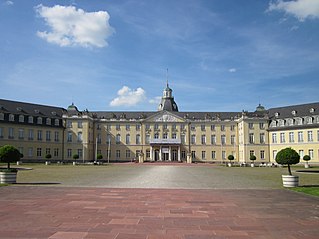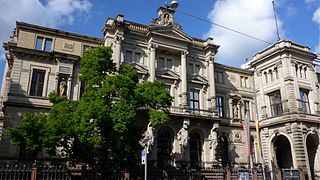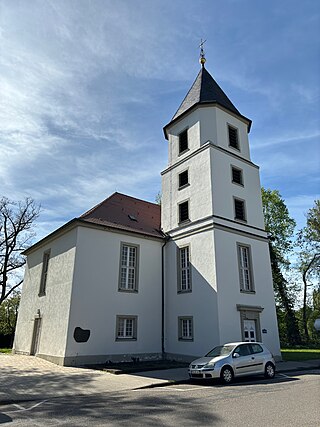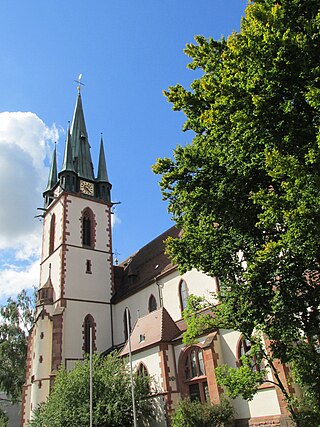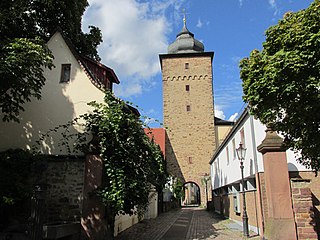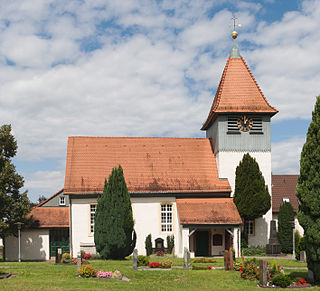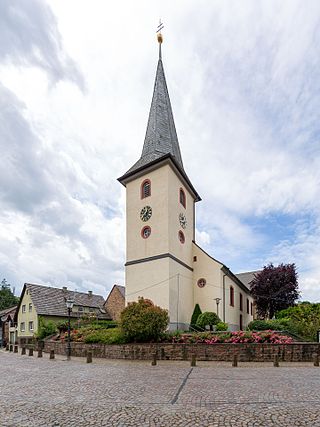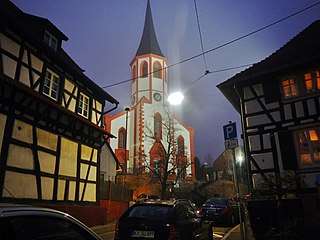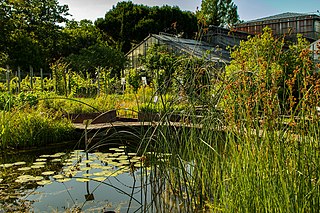34 Sights in Karlsruhe, Germany (with Map and Images)
Legend
Welcome to your journey through the most beautiful sights in Karlsruhe, Germany! Whether you want to discover the city's historical treasures or experience its modern highlights, you'll find everything your heart desires here. Be inspired by our selection and plan your unforgettable adventure in Karlsruhe. Dive into the diversity of this fascinating city and discover everything it has to offer.
Sightseeing Tours in KarlsruheActivities in Karlsruhe1. Christuskirche
The Christuskirche is a Protestant church in Karlsruhe, Germany. It was built between 1896 and 1900 by the Karlsruhe architects Curjel & Moser at the Mühlburger Tor, the beginning of the Weststadt. Today it is protected as a cultural monument of special importance.
2. Karlsruhe Zoo
The Karlsruhe Zoo is a city garden with a zoo in the southwest of Karlsruhe, Germany. It also encompasses the outer area; Tierpark Oberwald in the southeast of the city. The main area totals 22 hectares, and the Oberwald Zoo has an area of 16 hectares. A total of around 3000 animals of over 240 species live at the Zoologische Stadtgarten Karlsruhe. The city garden is located north of the Karlsruhe Hauptbahnhof and south of the Karlsruhe Congress between the Karlsruhe districts of Südstadt and Südweststadt. The zoo was opened in 1865, making it one of the oldest zoos in Germany. The city garden and zoo form a common, enclosed area and cannot be visited separately.
3. Evangelische Stadtkirche
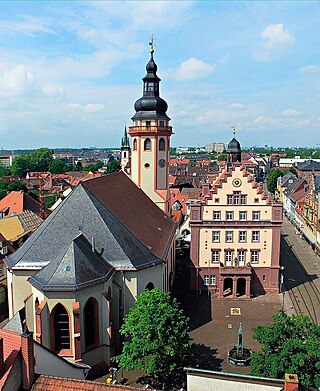
The Evangelical City Church is a Protestant church built in the early 19th century in the city center of Karlsruhe. It is one of the two church buildings of the old and medium-sized parish of Karlsruhe as well as the preaching place of the regional bishop of the Evangelical Church in Baden and thus the main church of the regional church.
4. Evangelische Stadtkirche

The Durlach City Church is a Protestant hall church in Durlach, whose origins date back to the 13th century. It has been rebuilt several times over the centuries and received its present Baroque appearance in 1701.
5. Talstation
The Turmbergbahn is a funicular railway in Karlsruhe in Germany. It is the oldest operating funicular in Germany. From Karlsruhe's former center Durlach, the line climbs the Turmberg, which on a clear day provides a lookout point with views of the Rhine Valley, the Palatinate forest and the adjacent parts of Alsace.
6. Karlsruhe Palace
Karlsruhe Palace was built in 1715 for Margrave Charles III William of Baden-Durlach after a dispute with the citizens of his previous capital, Durlach. The city of Karlsruhe has since grown around it. The building is now home to the main museum of the Badisches Landesmuseum.
7. ZKM Lichthof1+2
Das ZKM | Museum für Neue Kunst war ein Museum des Zentrums für Kunst und Medien in Karlsruhe, das 1999 aus dem Museum für Gegenwartskunst hervorging. Als „Sammlermuseum“ wurde das Museum für Neue Kunst unter der Leitung von Götz Adriani als ein vom ZKM quasi unabhängiges Museum geführt. Mit dem Weggang von Götz Adriani im Jahr 2004 wurde das Museum für Neue Kunst unter der Leitung Ingrid Leonie Severin als Abteilung ins ZKM reintegriert. 2017 wurden das Museum für Neue Kunst sowie das Medienmuseum im Rahmen der Neustrukturierung des ZKM formal aufgelöst und die Sammlungen der Häuser zusammengeführt.
8. Prinz-Max-Palais
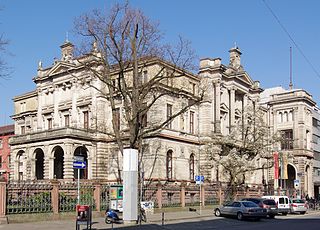
The Prinz-Max-Palais, initially Palais Schmieder, was built in Karlsruhe between 1881 and 1884 according to designs by Josef Durm in the neo-Renaissance style. It is named after Prince Max of Baden, who lived in the palace from 1900 onwards.
9. Turmberg
The Turmberg-Ruine, formerly Hohenberg Castle, is the ruin of a sporn castle at around 256 m above sea level. NHN on the spur tip of the Turmberg 1000 meters east of the town center of Durlach, a district of Karlsruhe in Baden-Württemberg, and is now used as a lookout tower.
10. Christian Daniel Nussbaum
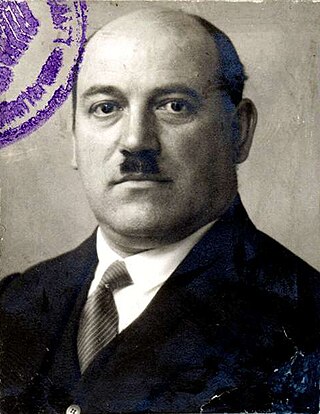
Christian Daniel Nussbaum was a German politician (SPD) and member of the Baden state parliament. In March 1933, during the National Socialist "seizure of power", Nussbaum shot two policemen in Freiburg im Breisgau who wanted to take him into "protective custody". Nussbaum was later declared incompetent; the deaths of the two policemen were used by the National Socialists in Baden as a pretext for intensified action against the workers' movement.
11. Badisches Staatstheater
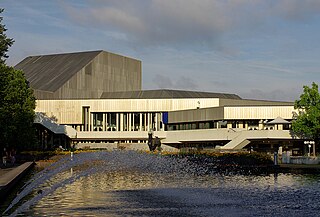
The Badisches Staatstheater Karlsruhe is a theatre and opera house in Karlsruhe, Germany. It has existed in its present form and place at Ettlinger Tor since 1975. Achim Thorwald became the Intendant in summer 2002 and held that post until the end of the 2010/11 season. Peter Spuhler succeeded him at the beginning of the 2011/12 season and continues to serve in that post.
12. Pyramid
The Karlsruhe Pyramid is a pyramid made of red sandstone, located in the centre of the market square of Karlsruhe, Germany. It was erected in the years 1823–1825 over the vault of the city's founder, Margrave Charles III William (1679–1738). The pyramid is regarded as Karlsruhe's second emblem, the city's absolutist layout in the shape of a folding fan being the first.
13. Staatliches Museum für Naturkunde
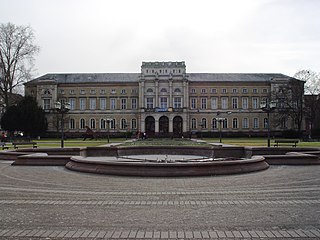
The State Museum of Natural History Karlsruhe, abbreviated SMNK, is one of the two state of Baden-Württemberg's natural history museums. Together with the State Museum of Natural History Stuttgart it is one of the most important repositories for state-owned natural history collections.
Wikipedia: State Museum of Natural History Karlsruhe (EN), Website
14. Bürklin'sches Mausoleum
The Bürklin Mausoleum is a burial place in the main cemetery in Karlsruhe and rises in the northeastern part of the area. This octagonally planned building is the former grave of the family of the politician Albert Bürklin.
15. Kleine Kirche
The Small Church is one of the oldest church buildings in the city of Karlsruhe. It is located on Karlsruhe's main shopping street Kaiserstraße near the market square. From Karlsruhe Palace, Kreuzstraße, one of the nine streets of the fan-shaped city layout, leads to the main façade of the Small Church.
16. Fasanenschlösschen
The Fasanenschlösschen or Fasanengarten-Schlösschen is a pleasure and tea house in the Karlsruhe Fasanengarten east of the castle tower, which was built in the years 1764 to 1765 in the Chinese style and is grouped together with two opposite pavilions, also in the Chinese style, as a building ensemble around a longitudinal oval square. Initially, the building was used for the breeding of pheasants, until around 1773 it was converted into a small castle in the course of the transformation of the castle garden into an English landscape garden.
17. Botanischer Garten
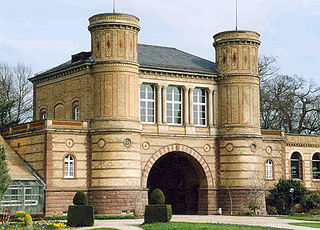
The Botanischer Garten Karlsruhe is a municipal botanical garden located in Karlsruhe, Baden-Württemberg, Germany. This garden should not be confused with the nearby Botanischer Garten der Universität Karlsruhe operated by the University of Karlsruhe.
18. Kaiser-Wilhelm-Denkmal
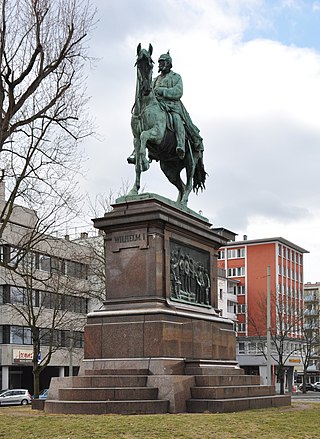
The Kaiser Wilhelm I Monument is an equestrian statue on the Kaiserplatz in Karlsruhe. It is surrounded by trees in the center of the square and faces east, so it seems as if Kaiser Wilhelm I is riding into the city.
19. Kaiserplatz
Der Kaiserplatz ist ein Platz in der Karlsruher Innenstadt-West. Er befindet sich am westlichen Ende der Kaiserstraße in unmittelbarer Nähe des ehemaligen Mühlburger Tors und steht somit an der Grenze zwischen der Weststadt und der Innenstadt. In der Mitte des Platzes befindet sich das Kaiser-Wilhelm-Denkmal, ein nach Osten ausgerichtetes Reiterstandbild Wilhelm I.
20. Hauptfriedhof
The Hauptfriedhof in Karlsruhe is one of the oldest German communal rural cemeteries. In 1871, the first plans to build a new burial ground outside the city center began. The cemetery was laid out in 1874 by Josef Durm in the Rintheim district, east of the actual city, after the inner-city Alter Friedhof Karlsruhe in the Oststadt had become too small. The main cemetery has grown from its original size of 15.3 hectares in 1873 to over 34 hectares. The graves of more than 32,000 deceased are currently in the cemetery.
21. Bonifatiuskirche
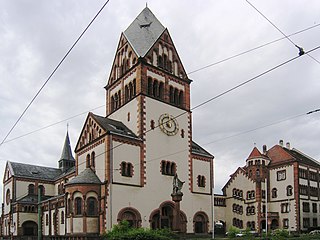
The Roman Catholic parish church of St. Bonifatius is located in the Weststadt of Karlsruhe, a city in Baden-Württemberg, Germany. The building is registered as an architectural monument with the Baden-Württemberg State Office for the Preservation of Monuments. The parish belongs to the deanery of Karlsruhe in the Archdiocese of Freiburg.
22. Lauterberg
The Lauterberg is an artificially raised hill in the city garden of Karlsruhe, created from 1889 to 1893. Originally, the hill was built for water supply, and inside it is a former water reservoir. The material for the backfill came from the excavation of two lakes in the surrounding area.
23. Ettlinger Linie
The Ettlingen Line or Lower Line was a defensive line built in 1707 during the War of the Spanish Succession from brushwood (Verhauen) and palisades, which replaced the 1701 Bühl-Stollhofen Line after that had been destroyed in May 1707 and levelled by French troops.
24. Verkehrsmuseum Karlsruhe
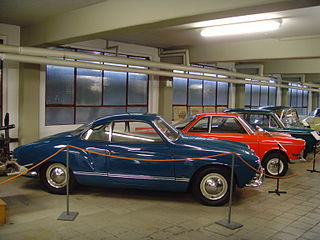
The history of transport from the beginning of the 19th century to the present day is exhibited in the Karlsruhe Transport Museum. The collection includes historic bicycles, motorcycles and cars, as well as railway models. In addition, technical inventions are also illustrated and developers from the region are presented, such as Karl Drais and Felix Wankel.
25. Badisches Landesmuseum
The Baden State Museum in Karlsruhe is the large cultural, art and regional history museum of the Baden region of Baden-Württemberg. With its globally significant collections, representing more than 50,000 years of international cultural history, it conveys history and historical living environments. Its collections range from prehistory and early history to the Middle Ages and the 21st century. The museum was founded in 1919 and opened in 1921 in the rooms of Karlsruhe Palace.
26. Museum für Literatur am Oberrhein
The Museum of Literature on the Upper Rhine in Karlsruhe is a museum about literary life in the Upper Rhine region. It is maintained by the Literary Society Karlsruhe. It was opened for the first time in 1926, making it one of the oldest literature museums in Germany.
27. St. Nikolaus
The Roman Catholic branch church of St. Nicholas is located in Rüppurr, a district of Karlsruhe in Baden-Württemberg. The building is registered as an architectural monument with the Baden-Württemberg State Office for the Preservation of Monuments. The church belongs to the Karlsruhe deanery of the Archdiocese of Freiburg. The patron saint of the church is Nicholas of Myra.
28. Sankt Peter und Paul
The Roman Catholic parish church of St. Peter and Paul is a protected cultural monument with the number 01463 according to the Monument Protection Act. It is located in Durlach, a district of Karlsruhe. The parish belongs to the parish of Karlsruhe-Durlach – Bergdörfer in the deanery of Karlsruhe of the Archdiocese of Freiburg.
29. Basler Tor
Der Basler Torturm in Durlach, einem Stadtteil von Karlsruhe im nördlichen Baden-Württemberg, ist das letzte erhaltene Stadttor der ehemals markgräflichen Residenzstadt. Der Torturm ist ein geschütztes Kulturdenkmal.
30. Evangelische Jakobskirche
The Protestant Jakobskirche is a protected cultural monument according to the Monument Protection Act in Wolfartsweier, a district of Karlsruhe in Baden-Württemberg. The parish belongs to the parish of Bergdörfer in the church district of Karlsruhe and Durlach of the Evangelical Church in Baden.
31. St. Cyriakus
The Roman Catholic parish church of St. Cyriakus is located in Bulach, a district of Karlsruhe in the district of Karlsruhe in Baden-Württemberg. The building is registered as an architectural monument with the Baden-Württemberg State Office for the Preservation of Monuments. The parish belongs to the Karlsruhe deanery of the Archdiocese of Freiburg. The patron saint of the church is St. Cyriacus, one of the fourteen helpers in need.
32. St. Cyriakus
The Roman Catholic parish church of St. Cyriakus is located in Stupferich, a district of the city of Karlsruhe in Baden-Württemberg. The building is registered as an architectural monument with the Baden-Württemberg State Office for the Preservation of Monuments. The parish belongs to the deanery of Karlsruhe in the Archdiocese of Freiburg.
33. Knielinger Kirche
The Evangelical Church of Knielingen is the parish church of Knielingen, a district of Karlsruhe in Baden-Württemberg, Germany. The building is registered as an architectural monument with the Baden-Württemberg State Office for the Preservation of Monuments. The parish belongs to the church district of Karlsruhe and Durlach in the Evangelical Church in Baden.
34. Botanischer Garten des KIT
The Botanical Garden at the Karlsruhe Institute of Technology (KIT) is assigned to the Botanical Institute under Peter Nick and serves both research and teaching. In addition, the conservation of endangered plant species is another core task. Karlsruhe also has a second botanical garden in Karlsruhe, the Schlossgarten. Both botanical gardens emerged from the garden of Karlsruhe Palace and complement each other in their functions, because the palace garden served and still serves above all the recreation and aesthetic pleasure of the population.
Wikipedia: Botanischer Garten des Karlsruher Instituts für Technologie (DE)
Share
How likely are you to recommend us?
Disclaimer Please be aware of your surroundings and do not enter private property. We are not liable for any damages that occur during the tours.
